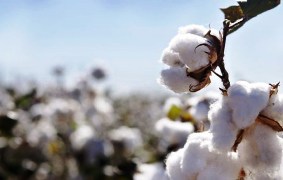The Brazilian Association of Cotton Producers (ABRAPA) along with the Bahia Association of Cotton Producers (ABAPA) of the Brazilian state of Bahia, unveiled guidelines of the Brazilian Cotton Program Manager (ABR) sustainability protocol for the 2013-2014 harvest season of the country.

According to a statement issued by ABRAPA, the ABR protocol aims to unify the certification of sustainability in cotton production in Brazil, encompassing actions on three pillars, namely environmental, social and economic.
The set of regulations for the next season includes that every ABR certified cotton cultivating farm in Brazil can receive, by choice, the licensing for commercialization of the crop under Better Cotton Initiative (BCI).
At the presentation of the sustainability protocol for cotton for the next season, Denilson Gualbero, coordinator of sustainability in ABRAPA, said cotton is a novelty crop and the union of ABR and BCI can give producers maximum yield during the next harvest season.
According to the ABRAPA official, under the ABR protocol cotton producers in the country may choose to obtain licensure BCI only at the time of accession.
Another advantage to cotton growers under ABR is the facilitated access to new niche markets, and producers participating in the ABR program and licensing BCI would also receive other benefits in the long, medium as well as short term, he added.
For ABR certification, initially, an internal check is performed by teams of sustainability of state associations, who observe compliance of properties with list of program requirements. The technicians go to the farms for evaluation and provide guidance on how to fix any potential problems.
The ABR program aims to implement good social practices for sustainable development in farms producing cotton in the country, especially in terms of regularity of labor relations and compliance of workplace safety, prohibiting the use of child labor and forced labor practices or analogous to slavery, the legal protection and preservation of the environment, and the application of good agronomic practices in cotton production.





